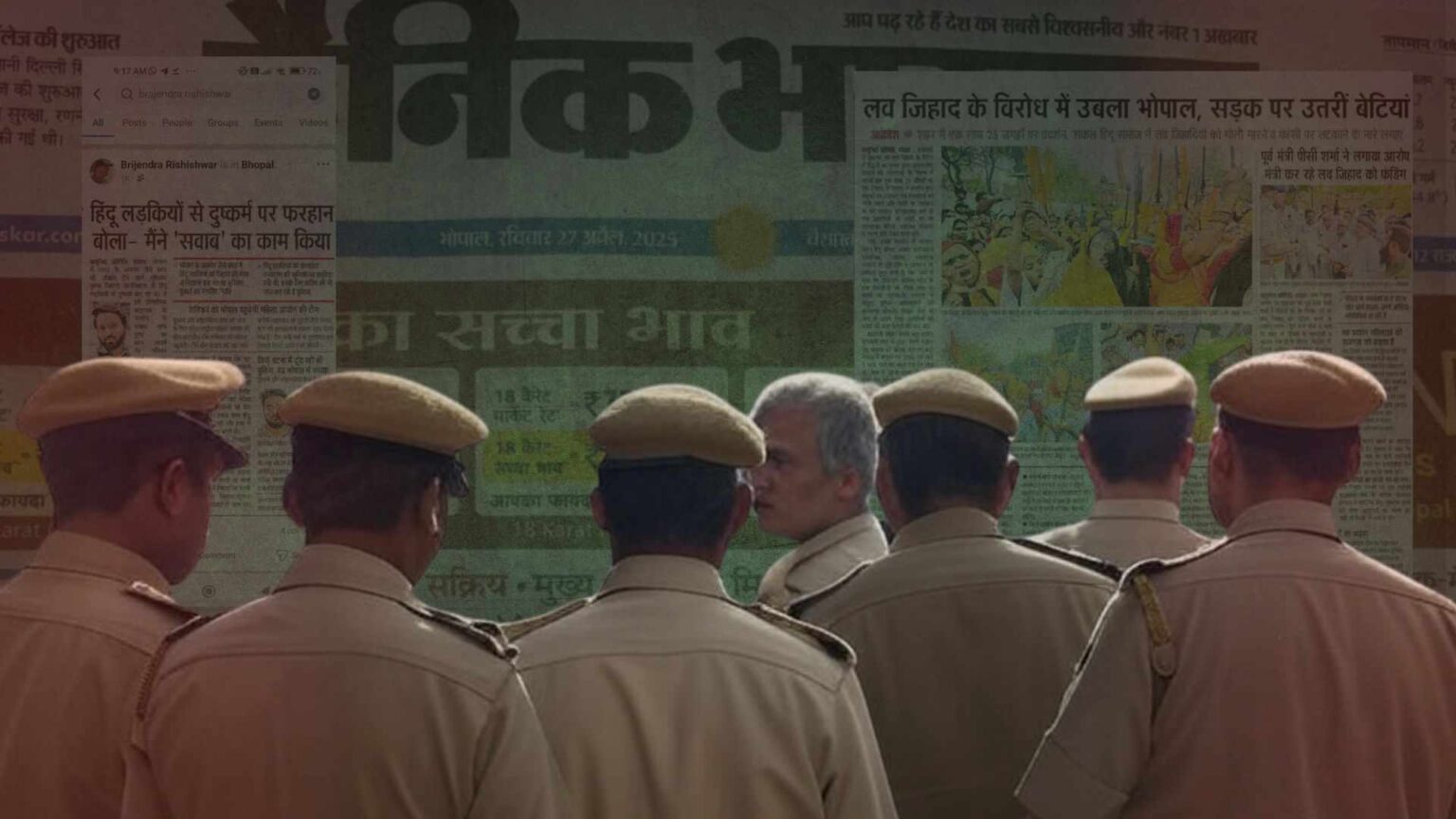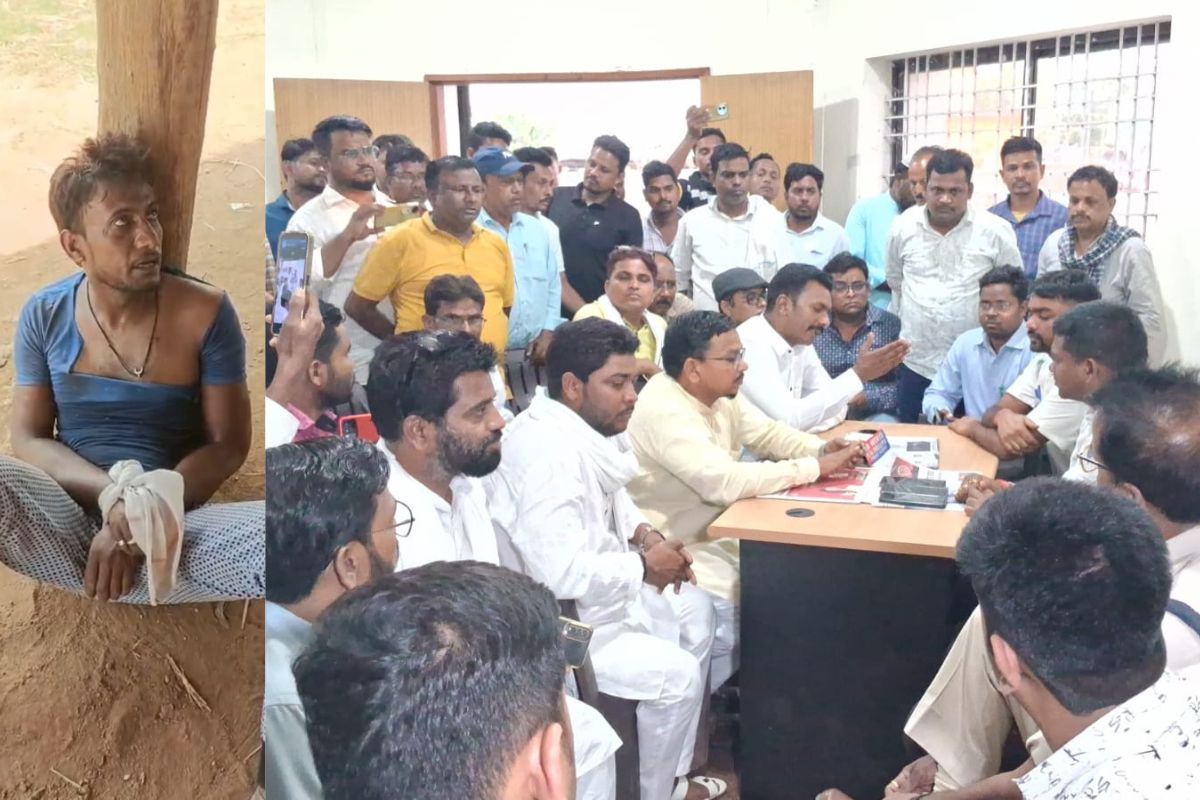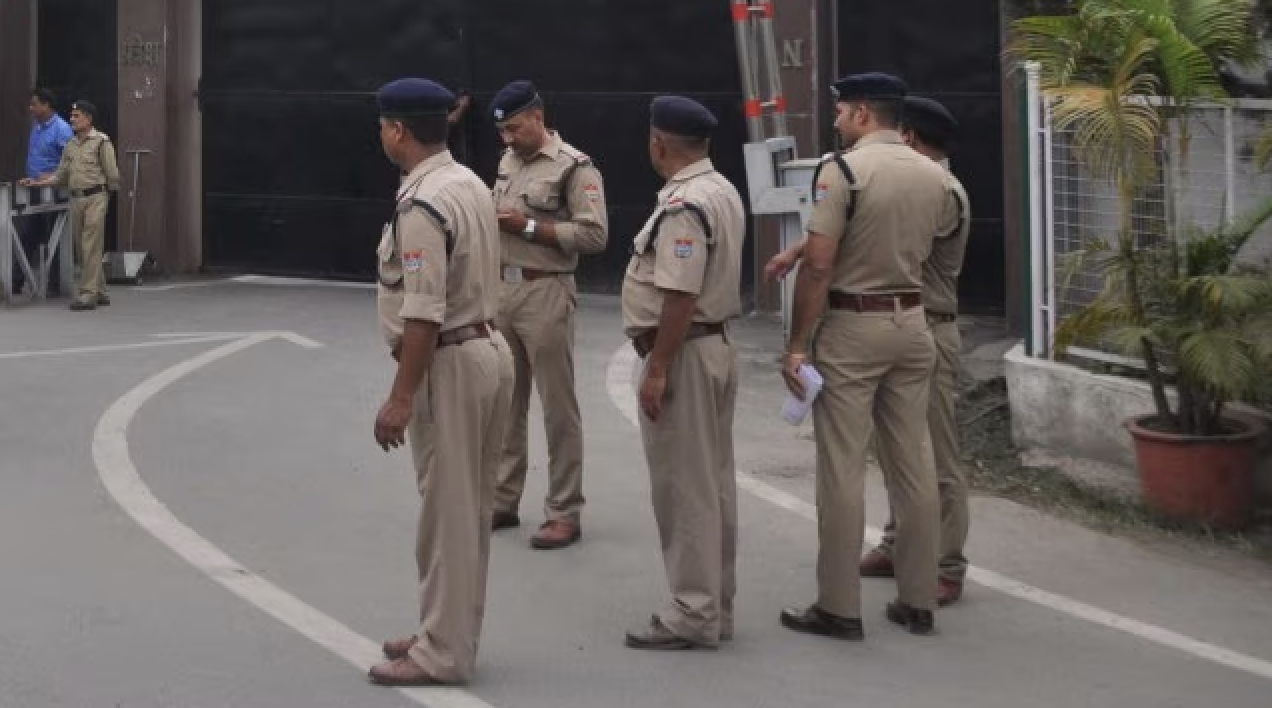
By Jehangir Ali / The Wire
Srinagar: Authorities on Thursday ordered the Jammu and Kashmir Police to arrest and produce Srinagar-based journalist and author Gowhar Geelani before an executive magistrate (tehsildar) in south Kashmir’s Shopian on February 19.
Gowhar, whose work is regularly featured by the German public broadcaster Deutsche Welle and The Federal, was summoned on February 3 to appear before the executive magistrate, Shopian, on February 7 under Section 107 of the Code Of Criminal Procedure, 1973.
The section empowers a magistrate to extract a “bond”, or a written statement, from a person who “is likely to commit a breach of the peace … disturb the public tranquillity … (or) occasion a breach of the peace”. As per law, the duration of the ‘bond’, which free speech activists describe as “a vow of enforced silence” can’t exceed more than a year.
“In view of non-appearance of Gowhar Nazir Geelani after serving notice upon him under section 107/151 CrPC vide No TS/EST/21-22/145, dated 03/02/2022, you (police) are directed to arrest and produce the above said person before this court on 19/02/2022, in order to maintain peace and public tranquility in the jurisdiction of this court,” reads the arrest warrant issued by the Shopian magistrate.
While the arrest warrant, accessed by The Wire, states that Section 151, The Code Of Criminal Procedure (CrPC), has been invoked against Geelani, the notice served to the journalist on February 3 only mentioned Section 107. Under Section 151 CrPC, a person can be put into preventive detention and, in the case of Geelani who has been previously booked under the Unlawful Activities Prevention Act, the period of detention can be extended indefinitely.
Both the sections of CrPC were invoked against top political leaders including two former chief ministers – Mehbooba Mufti and Omar Abdullah – and others after the Union government abrogated the special status of Jammu and Kashmir and bifurcated the erstwhile state into two union territories.
The legal action against Geelani, author of the acclaimed book Kashmir: Rage and Reason (Rupa Publications), came after he tweeted a news story published by a local newspaper on February 1 regarding a militant attack in Shopian’s Amshipora village in which a policemen identified as Shabir Ahmad Wagay was injured.
“Suspected armed rebels shot policeman identified as Shabir Wagay, resident of Amshipora, Shopian, leaving him critically injured. He was shifted to District hospital Shopian from where he was shifted to SMHS hospital for advanced treatment,” the tweet, which has since been deleted by the author, said.
Two days later, the court of executive magistrate in Shopian issued a summon, stating that Geelani had “disseminated information on social media that would have endangered the life of injured individual and other persons besides circulation of your information have raised serious security and breach of peace concerns.”
The magistrate noted that Geelani had “acted in a manner prejudicial to public interest that have (sic) tendency to disturb public peace, tranquility and security and I have strong apprehensions you will continue with such activities that will have an impact on … peace and public tranquility in my jurisdiction.”
While referring to FIR NO. 57/2021 U/S 13, UAPA (advocating, abetting, advising or inciting the commission of unlawful activity) and 505 IPC (public mischief) registered by Srinagar police, the summon by the Shopian magistrate notes that Geelani has been “continuously in clandestine manner propagating, such information and activities that has an adverse impact upon breach of peace, tranquility and security”, ordering the J&K Police to arrest him.
Since the reading down of Article 370, Geelani has been a vocal critic of the policies adopted by the Union government as well as J&K administration. He used to regularly update his social media timelines with his takes about the political and security situation in J&K and other parts of the country. However, after he was summoned by the executive magistrate, his social media accounts have fallen silent.
In 2020, the J&K Police had booked Geelani under the anti-terror legislation for “indulging in unlawful activities through his posts and writings on Social Media platform (sic) which are prejudicial to the national integrity, sovereignty and security of India.” Geelani and another Kashmiri journalist, Masrat Zahra, who has now shifted to Germany, were charged for posting “seditious, incendiary, and incriminating” information on social media.
Earlier on August 31, 2019, Geelani, the father of a young girl, was stopped by immigration officials at New Delhi’s Indira Gandhi International Airport when he was on way to Germany to attend a training programme in Bonn as an editor of Deutsche Welle. Geelani had said that the immigration official did not provide any reason for stopping him. “I can only guess that they are trying to muzzle every voice challenging the narrative of the state government. They must have got paranoid about me travelling abroad,” he told Scroll.in.
The arrest warrant against Geelani comes barely days after Fahad Shah, award-winning journalist and editor of Kashmir Walla, a news website based in Srinagar, was arrested by the Jammu and Kashmir Police and charged for publishing “antinational content”, in what activists described as “widening crackdown” on the media in Kashmir.
Shah’s arrest had triggered outrage across the country, with the Editors Guild of India as well as over 50 press freedom organisations, human rights groups and media publications, both national and international, writing a letter, urging J&K Lieutenant Governor Manoj Sinha to release the Kashmiri journalist.
The J&K Police has, however, said that Shah was “wanted in 3 cases for glorifying terrorism, spreading fake news & inciting general public for creating L&O (law and order) situations: FIR No. 70/2020 of PS Safakadal Srinagar, FIR No. 06/2021 of PS Imamsahib, Shopian & currently has been arrested in FIR No. 19/2022 of PS Pulwama.”
Last year, the French non-profit Reporters Without Borders listed India in its index of countries considered “bad” for journalism and “among the most dangerous places in the world for journalists”. For the second successive year, India ranked 142 among 180 countries on the index.
This story first appeared on thewire.in






